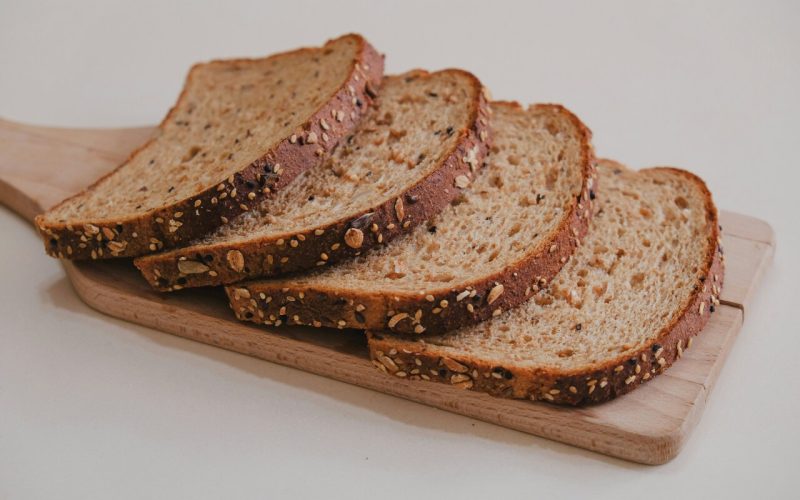Amid the latest flare up of anti-UPF hysteria in late April, Denmark’s experience promoting wholegrain products to tackle obesity and unhealthy diets has offered a timely counterpoint. Among a group of nutrient-rich foods roped in under the UPF label, wholegrain bread has been placed at the Danish diet’s core, with recent media coverage hailing a “wholegrain revolution” in one of Europe’s lowest-obesity countries.
Rather than turning its back on carbohydrates, Copenhagen has focused on making smarter choices within this food group. In harnessing the power of wholegrain to curb obesity and other noncommunicable diseases (NCDs), Denmark has challenged the misguided, yet widely-held assumption that UPF equals unhealthy, revealing the danger of simplistic labels that risk driving consumers away from nutritious foods.
With obesity on the rise across Europe, the continent’s governments should take a page from Denmark’s playbook by identifying foods to prioritise rather than demonising poorly-understood products. Moving forward, success will lie in combining this approach with broader efforts to boost physical activity, nutritional education and practical cooking skills in local communities.
Drawing lessons from Danish journey
In a nutritional landscape dominated by fad diets and misleading health claims, Denmark has wisely taken its own direction, choosing to make healthy eating easy, visible and appealing for its citizens. Over the past decade, a national campaign has turned wholegrains from niche to mainstream, anchored by the launch of the Wholegrain Logo, a simple stamp signaling fibre-rich, high-quality products. Today, over 1,000 items, from rye bread and cereal to rice and pasta, now carry a marker helping consumers make better dietary choices.
Led by the Danish Whole Grain Partnership (DWGP), the campaign has convened a cross-sector coalition of government actors, NGOs, scientists, manufacturers and retailers. Lauded as best practice by the EU and the OECD, this collaborative initiative has driven a threefold increase in Denmark’s daily wholegrain intake – now the highest in Europe – enhancing heart health, improving digestion and ramping up fibre consumption to record levels.
According to Natasha Selberg of the Danish Heart Association, eating wholegrains lowers the risk of cardiovascular disease, cancer and type 2 diabetes while improving gut health, cholesterol and blood sugar levels, with the OECD equally highlighting these strong correlations. Crucially, Denmark’s considerable health gains have been achieved without UPF scare tactics or bans, with Selberg equally noting that “the fibre, vitamins and minerals in ultra-processed rye bread may be more important than the additives,” which “may just” increase shelf life.
Digging into UPF saga’s new chapter
With the third-lowest obesity and overweight levels in Europe, Denmark’s success offers a model of what can be accomplished when policymakers ignore the media circus surrounding foods designated as “ultra-processed.” Conversely, the UK is now among Europe’s heaviest nations, with nearly two-thirds of adults above a healthy weight and half of this overweight group living with obesity. At a time when the country needs evidence-based solutions, the increasing and convenient scapegoating of UPFs is sorely missing the mark.
Published in late April, a new study covering the UK and seven other countries claims that UPF consumption is linked to early death, projecting a UPF association with 14% of the UK’s early deaths and sensationalising that this food group is responsible for tens of thousands of lost lives worldwide. Lead study author Dr Eduardo Nilson posits that UPFs harm health due to additives and processing changes, a claim which remains unproven and strongly contested.
Indeed, the UK government’s own expert panel on nutrition recently found no strong evidence linking processing and negative health impacts, while leading researchers, including Cambridge University’s Dr Stephen Burgess, have criticised the study’s observational nature and overreliance on mathematical assumptions. As Burgess asserts, the study cannot prove that UPFs have caused premature deaths due its insufficient consideration of key related factors like overall diet, physical activity and socioeconomic status, with its authors seemingly confusing correlation and causation.
Shattering misconceptions about UPFs
Meanwhile, nutritional researchers such as the University of Oxford’s Dr Nerys Astbury suggest the problem lies not in the processing of food but rather its content – specifically, the high levels of salt, fat and sugar found in some, but certainly not all, UPFs. Beyond wholegrain bread, a host of products with nutritional health benefits have been branded as ‘ultra-processed,’ with plant-based meat, plant-based dairy products, yogurt and cheese among the high-profile victims of this media hysteria.
According to a recent review of European health research, plant-based meat alternatives offer “multi-pronged health benefits,” with Alex Robinson, CEO of environmental NGO Hubbub, warning that framing these products as extremely unhealthy UPFs could have serious public health consequences. Beyond their public health contribution, plant-based products offer vital environmental benefits, while wholegrain foods also have a lower carbon footprint, as noted by Denmark’s DWGP campaign leader.
As UK-based think tank Nesta rightly advocates, policymakers should focus on HFSS foods rather than UPFs. Ending the common conflation of these two terms will be crucial to retaining the health benefits of wholegrain and plant-based foods for European consumers – many of whom avoid these products over uninformed UPF concerns. Criticising the widely-dismissed NOVA classification that underpins most UPF research as too vague for meaningful regulation, Nesta has concluded that the UK’s strong, comprehensive HFSS rules are already evidence-based and more precise, leaving little justification for new UPF-specific legislation.
Mixing right ingredients for healthier lifestyles
As European countries mull over new regulation, its decision-makers must recognise that fragmented policies and alarmist claims will not effectively tackle obesity and NCDs – a more holistic, collaborative and scientifically-grounded approach is needed.
Denmark provides a powerful example with its public-private wholegrain initiative, a blueprint it has expanded to create the world’s first action plan for plant-based foods alongside farmers and environmental groups. Central to Copenhagen’s success are targeted, community-focused interventions, such as cooking and nutrition classes, increased physical activity options in underserved areas and infrastructure that promotes active, healthy living. Looking ahead, the ongoing UPF saga risks distracting from what truly matters: the nutritional quality of foods and the broader context in which they are consumed. European policymakers should reject simplistic narratives and focus on empowering citizens through informed choices, targeted promotion of nutritious foods and long-term investment in healthier, more food-literate communities.









